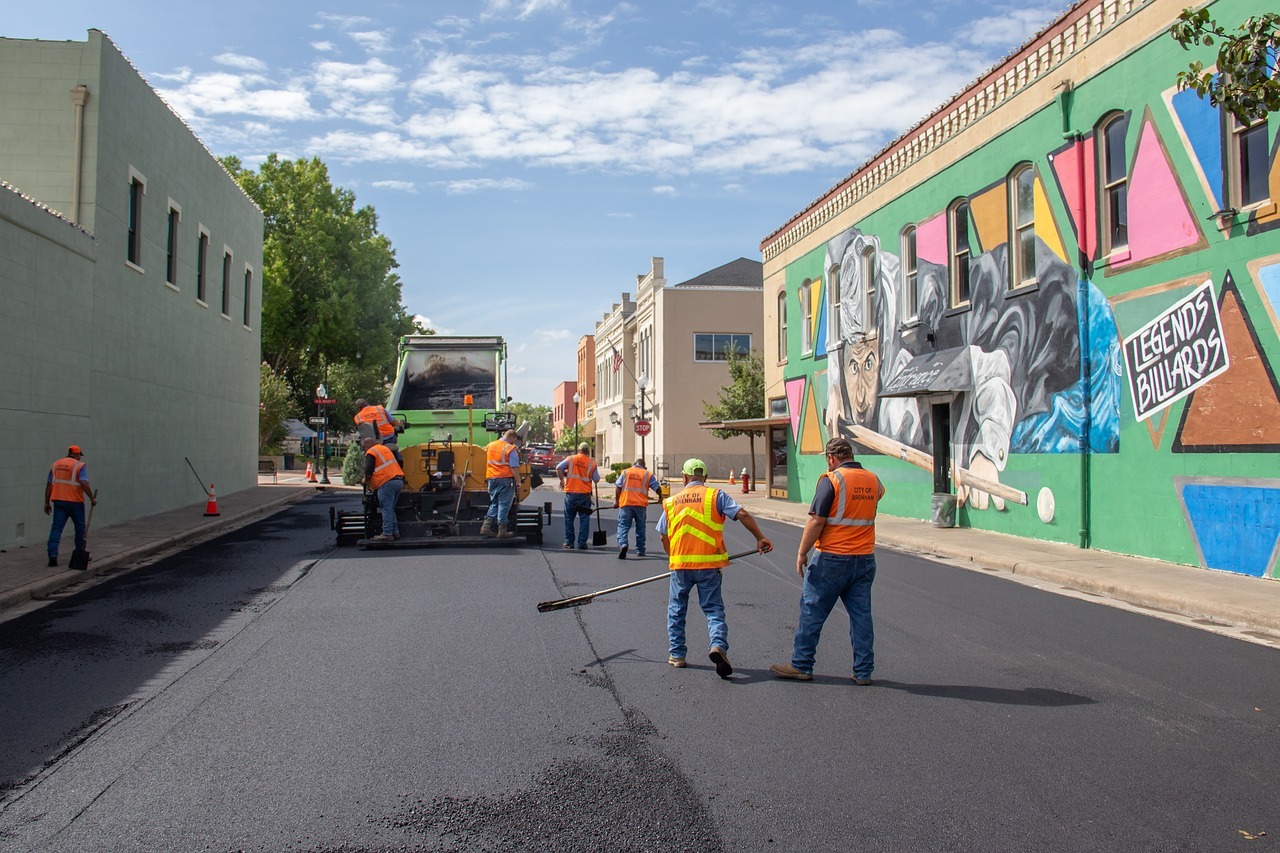Asphalt paving companies, like economypaving.ca, must contend with all the natural elements. Rain, sleet, snow, hail, lightning and other weather phenomena can play a particularly poignant role in the life of a paver. And, one question that comes up frequently when discussing the natural weather events that they must endure is whether or not asphalt paving can be done in the rain.
There is a good reason to inquire after this information. After all, asphalt paving companies rely on a material that must cure before it hardens, and moisture is often an important consideration in the curing process. Plus, for clients around the world, hearing that their project may be delayed due to inclement weather surely raises some alarm bells in the recesses of their minds.
But, it is not only the potential problems that make this subject matter so particularly evocative. Indeed, it is also that it brings into question the limitations of our building materials. If rain is enough to prevent their progress, what else may proffer negative effects? These doubts are overblown, of course, but they do make many asphalt paving companies pause and give thought to the answer.
Can Asphalt Paving Be Done in the Rain?
Yes and no, like so many answers, is the best response to this question! Although it may not seem like much of an answer at all, there is a method to the volley. Indeed, the conditions necessary for success will change depending on the application. First, let’s take a look at new construction and new asphalt. But you need to keep in mind, however, that not all asphalt is the same.
New Asphalt Construction and Rain
Asphalt paving companies that are performing a new construction project may not be adversely affected by the rain. This effect is due to the fact that new asphalt contains oils that wick away moisture, letting the inner material harden without issue. Since the material has nothing to bond to, there is also no concern about an improper cure to be had. However, the same cannot be said of repairs, maintenance and upgrades.
Remedial Asphalt Construction and Rain
For repairs, maintenance and upgrades, the process of asphalt paving is a bit more complicated. The chief difference here, between new and old asphalt, is that a bonding between the materials must occur in remedial work. This bond helps strengthen the system overall and prevents issues related to premature failure. When there is too much moisture present, it seeps through and around the material, pooling on the underside. This can lead to problems in the long term and should be accounted for by all asphalt paving companies.
How to Protect Your Asphalt in the Rain
There are many forms of rain and snow that will not have a negative impact on asphalt. Typically, these are small systems that don’t last too long or produce an excessive amount of moisture. On the opposite side of the debate, however, are storms that are so severe they bring weather alerts and emergency planning with them. These weather phenomena are so intense that almost no outside work can be performed, including asphalt paving.
And, of course, there is a significant middle ground with the weather. Storms that are consistent but not so energized that they require extra caution. In these cases, laying tarps over the asphalt surface, performing related work and preparing the work surface are better uses of labour. They prevent issues from occurring with the asphalt while also allowing the work to progress in a modified way. This option is the common choice for asphalt paving companies looking to protect their work and offer a quality product to their customers.

